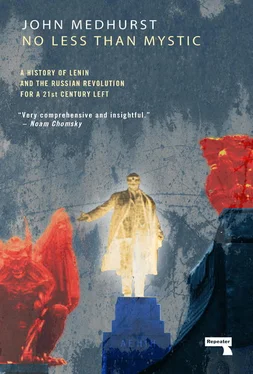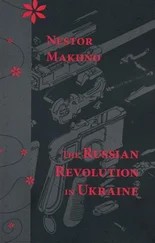It does not matter if the social framework in which this takes place is called Socialism, or Council Communism, or Social Ecology, or Communalism, or a Solidarity Economy. What matters is that it survives and thrives. Its language, song, poetry, slang, gifs, memes, shops, community centres, websites and fashion are emerging right now. A sprawling, rich, overlapping smorgasbord of anti-capitalist campaigns–Reclaim the Streets, Justice for Janitors, Earth First!, Greenpeace, CodePink, Avaaz.org, Brazil’s Landless Workers’ Movement, the Zapatistas, Adbusters, UK Uncut, Occupy and many more–mix politics, PR, art and design together. These campaigns, ideas and values are beginning to form a genuinely counter-hegemonic culture. In Britain it finds its best voice in campaigns to defend public services, such as Focus E15, Sisters Uncut, Take Back the City and the People’s Assembly, to demand tax justice and to democratise the state. It is based on the recognition, as Russell Brand wrote of the neoliberal capitalist model, that “it’s fucked and it’s fucking us and it’s obsolete”. 39
Lenin and the Bolsheviks also felt capitalism was fucked, but their prescription to end it was, in Rosa Luxemburg’s words, “worse than the disease it is meant to cure”. At the end of his life Trotsky, politically isolated, examined two awful possibilities: that the Russian Revolution had failed irrevocably and degenerated into “bureaucratic collectivism”; and that the historic mission of the proletariat might never be successfully carried out. In an article written on 25th September, 1939, he pondered, “If the present war will provoke not revolution but a decline of the proletariat, then there remains another alternative […] the further decay of monopoly capitalism, its further fusion with the state, and the replacement of democracy wherever it still remained with a totalitarian regime”.
He acknowledged that if the Stalinist bureaucracy was not “an abhorrent relapse” in the process of socialist construction, then the bureaucracy “would become a new exploiting class”. In that scenario,
if the world proletariat should actually prove incapable of fulfilling the mission placed upon it by the course of development, nothing would remain except openly to recognise that the socialist programme, based upon the internal contradictions of capitalist society, ended as a Utopia. 40
Trotsky could hardly have expressed more stoic fatalism and romantic despair had he been sitting in “one of the dives on 42nd St” with W.H. Auden, composing the greatest poem of the 1930s. For both men,
Exiled Thucydides knew
All that a speech can say
About Democracy,
And what dictators do,
The elderly rubbish they talk
To an apathetic grave;
Analysed all in his book,
The enlightenment driven away,
The habit-forming pain,
Mismanagement and grief:
We must suffer them all again. 41
Must we suffer them all again, or can the radical left now finally bury the elderly rubbish of Leninism?
Democratic, libertarian socialism existed before Leninism and will outlive it. It has been richly expressed in the work and thought of socialists and anarchists such as Robert Owen, William Morris, Edward Carpenter, Sylvia Pankhurst, Jean Jaurès, Emma Goldman, George Orwell, Aneurin Bevan, Murray Bookchin, Irving Howe, E.P. Thompson, Noam Chomsky, Tony Benn and Pablo Iglesias. This tradition encompasses libertarian Marxists such as Rosa Luxemburg, Anton Pannekoek, Raya Dunayevskya and Maurice Brinton, as well as Marx himself in some of his work, such as the Economic and Philosophical Manuscripts and the Grundisse . There is no internally consistent doctrine here. In important respects–most obviously, the role of the state–some of these writers contradict each other. But that is the point. Their work is a path to social and political liberation, a route map and general guide, not a doctrine that is omnipotent because it is true.
Leninism and the Bolshevik Revolution are a cautionary tale, a warning from history, an example of how not to overturn power and privilege and establish a healthy democratic alternative. Everything that was inspiring and positive about the Russian Revolution–the lively democracy of the Soviets and the Factory Committees, the seizure of landed estates by the peasant Volosts , the spirit of the Petrograd working class fighting to defend the city from the Whites, the progressive educational and social experiments, Kollontai’s work on female emancipation–sprang from deep values of autonomy and liberation that had very little to do with Marxist or Leninist theory, and were in some respects oppositional to them.
Those values were exemplified by two members of the Russian feminist punk band Pussy Riot, Maria Alyokhina and Nadya Tolokonikova, jailed for two years by the oppressive state machine of Vladmir Putin, who as an ex-KGB chief is literally the political heir of the Cheka, Dzerzhinsky and Lenin. At their trial for a direct-action propaganda protest, Maria Alyokhina said in her closing statement:
Because all you can deprive me of is ‘so-called’ freedom. This is the only kind that exists in Russia. But nobody can take away my inner freedom. It lives in the word, it will go on living thanks to openness [ glasnost ], when this will be read and heard by thousands of people. This freedom goes on living with every person who is not indifferent, who hears us in this country. With everyone who found shards of the trial in themselves, like in previous times they found them in Franz Kafka and Guy Debord. I believe that I have honesty and openness, I thirst for the truth; and these things will make all of us just a little bit more free. We will see this yet. 42
Introduction: Because It’s True
1 A colleague of mine, a well-read and politically literate member of the Socialist Party, upon reading in my first book a positive reference to the Menshevik leader Julius Martov, exclaimed with indignation that Martov was an imperialist and supporter of the First World War. Yet Martov was as opposed to the war as were Lenin and Trotsky. He was the prime organiser of the Zimmerwald anti-war conference in 1915 and, after the February 1917 Revolution, the leader of the “Menshevik-Internationalists” who opposed their own party colleagues in the Provisional Government who supported continuation of the war.
2 Christopher Hill, The Century of Revolution 1603 - 1714, Abacus, 1961, p.13
3 For Rosa Luxemburg’s “The Russian Revolution” see https://www.marxists.org/archive/luxemburg/1918/russian-revolution/ch01.htm
4 Bertrand Russell, The Practice and Theory of Bolshevism , Arc Manor, 2008 (first published 1921), p.43. Russell’s short book, written in 1920, is an astonishingly perceptive analysis of early Soviet Russia. Amongst its many insights it predicted that “Asiatic empire with all its pomps and splendours may well be the next stage of development” (Ibid, p.67).
5 Russell, Ibid, p.96
6 Julius Martov, State and Socialist Revolution , International Review, New York, 1940 (first published 1919), p.18
7 Alexander Berkman, The Bolshevik Myth , Pluto Press, 1989 (first published 1925). Berkman’s memoir is an indispensable starting point for those who instinctively side with the process of socialist revolution and the heroic ambition of Bolshevik slogans but are not blind to the failure and corruption of that ambition. It is written by a brave and principled libertarian socialist who devoted his life–before and after the Bolshevik detour–to those principles.
8 Emma Goldman, My Disillusionment in Russia , Dover, 2003 (first published 1923/24), p.vii
Читать дальше












